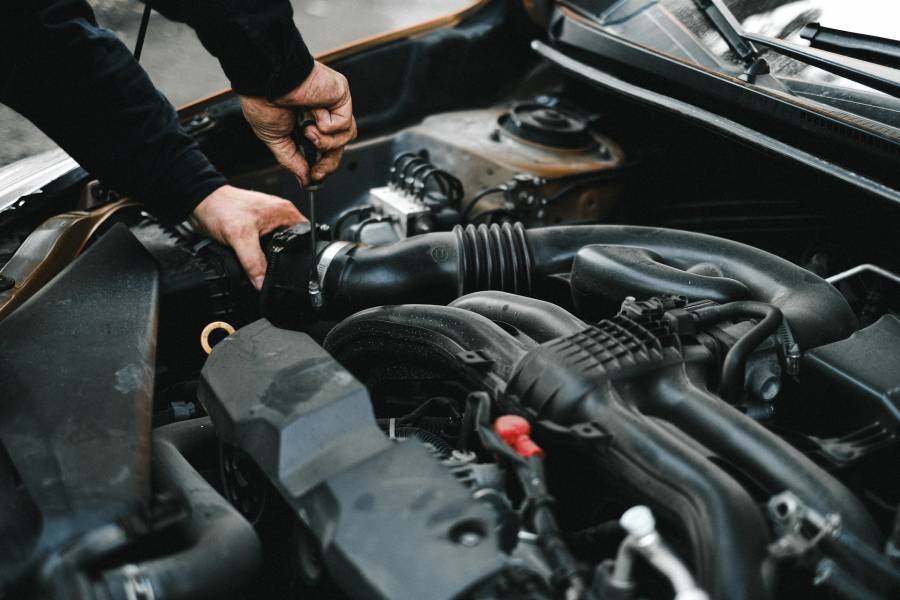Quick Navigation
A car engine is the heart of your car. However, your car engine might experience problems, including a lifter tick and rod knock.
Will you want to guard it in the best way possible?
In this article, you will learn how to differentiate the two problems.

Comparison Between Lifter Tick And Rod Knock
This article is for you if you have trouble differentiating between a tick and a knock.
We will take you through the differences and similarities between a lifter tick and a rod knock.
Here are some of the critical comparisons between the two engine problems.
Sound
The sound is one of the first indicators that your engine has issues. You will immediately hear a sound when your car engine has a lifter tick or a rod knock.
Differences
- It is easy to differentiate the sound of a lifter tick from that of a rod knock.
- You will hear a tapping sound when your engine has a lifter tick.
- With a rod knock, the noise it causes on your engine resembles a loud banging sound.
- You are likelier to hear the rod knock immediately after letting off the gas. The sound then becomes more irritating depending on your driving speed. The more you accelerate, the louder the rod knocks.
Similarities
- Both the lifter tick and rod knock cause damage to your engine.
- You will hear both lifter and rod knocks from the engine.
Causes
Each engine problem has various causes. They may be similar if they are associated with the oil and different if they are due to other reasons.
Differences
Several problems cause a lifter tick. They include the following:
- Contaminated oil – Your car engine cannot function at its best when it has contaminated oil.
- Wrong oil grade – To operate at its best level requires the correct oil grade. You will likely hear a lifter tick if you fail to use the correct oil.
- Too little oil – An engine requires a lot of oil for enough lubrication. If the oil is too little, the lifters will not function properly, resulting in a tick.
- Bad lifter – If you are sure that your oil is perfect and still experiences a tick, then the lifter itself has an issue.
- The push rod may be bent, causing the tapping sound – A bent on the push rod can be due to your vehicle’s age and poor maintenance. If the push rod bends, it affects your lifter, causing an irritating tapping sound.
- Lack of continuous contact between the push rod and the lifter.
While the above issues cause a lifter tick, different factors lead to a rod knock.
The following are the causes of a rod knock:
- Worn-out rod connection bearings – The bearings of a vehicle’s engine wear out over time. When this happens, it results in a rod knock which will require your immediate attention.
- Poor timing where the spark plugs fire – When the spark fails to plug fire, it leads to several malfunctions in the cylinder. Poor timing then results in the immediate loud sound from your engine.
- Fuel mixture – A lousy fuel pump might lead to oil mixtures in the cylinders. A lean variety will occur when there is no balance between the fuel and air in the engine, leading to a rod knock.
- Low octane – The air and fuel mixture typically burns in a single detonation within one engine cylinder. If the combustion occurs in more than one cylinder, you will experience a rod knock.
Similarities
The two engine problems result from the maintenance levels you have on your car.
The better the conditions of your vehicle, the higher the chances of avoiding a rod knock and lifter tick.
Symptoms Of A Lifter Tick And Rod Knock
You must be aware of their symptoms to tell whether you are experiencing a lifter tick or a rod knock.
This way, you will know what to fix early enough before it causes further damage to your engine.
Differences
The symptoms of a lifter tick include the following.
- A tapping sound that distracts you while driving.
Signs of a Rod Knock:
- Knocking sound which comes from your engine.
- Low oil pressure. You will notice these pressure changes when you first ignite your car.
Similarities
Both engine problems cause a distracting sound from your engine.

Repair Costs
Differences
For each problem, you will spend a different amount to fix the problem. You are more likely to spend $2500 or higher for a rod knock.
Repairing a lifter tick depends on the problem you are fixing. For example, if all you need is an oil change, you will spend between $30-$160.
If you are replacing an engine part, you will spend between $200-$1000, which might be higher for a luxury car. A push rod replacement will cost $500-$1500.
Similarities
Repairing a lifter tick and a rod knock entirely depends on your car type. The more luxurious your car is, the more dollars you will need to spend on the repairs.
The cost also depends on location in which you get you to take your car for repair.
Effects
Both rod knock and lifter tick cause severe effects to your engine, especially if left for a long time.
Differences
The effects of a lifter tick include the following:
- Distractions while driving
- It damages the catalytic converter
- It damages the camshaft
- Causes internal engine failure
- The effects of a lifter tick begin with the irritation while driving and advance to the engine failure if you do not take immediate measures.
Effects of a rod knock include the following:
- It might call for a complete engine replacement.
You might need to sell your ride.
- It takes a lot of investment to fix an entire engine. Improving the engine happens when you ignore the rod knock for a long time.
Similarities
A rod knock and a lifter tick can result to complete engine failure. If you ignore the two engine problems, you will spend more money fixing an engine failure.
Both problems cause an irritating sound that will distract you while driving.
Repair Measures
Repairing engine problems is vital to avoid worse and more costly damages.
Differences
Fixing a rod knock is associated with the interior parts of your car engine. To select a rod knock, you must carry out a regular oil change service.
Regularly inspect the rod bearing and replace them if they become worn out. You can also pour injection cleaner into your gas tank to fix a rod knock.
On the other hand, when you need to fix a lifter tick, use an additive to keep the oil at its best. If the lifter is faulty, causing the problem, you need to replace it.
Similarities
You need to check the engine oil to fix a rod knock and a lifter tick.
Take Away
Engine problems appear due to several issues. Identifying and fixing the root problems is vital to prevent further damage.
For your car engine to function correctly, you must eliminate the lifter tick and rod knock as soon as you detect them.
They both risk the lifespan of your machine, something you would want to avoid.

Kevin has been hanging around cars and automobile magazines since he knew what a car is. He grew up in his father’s 1995 Mercedes E320 Wagon and Volkwagon Phaeton W12 2004. He rides his first car, a manual 1979 Porche 911SC.
Currently, he owns an Acura Integra GS-R. During his childhood, he showed a keen interest in how things actually work and fix them. This passion transforms into his eternal love for cars and bestows him an ideal position in one of the leading automobile companies; whenever he finds time, he takes out his Acura and opts for the longest possible route to find hidden wholesome pleasure in a road trip.
Want to read some of the articles written by Kevin? Head to our blog section to find out all the articles written by Kevin.
